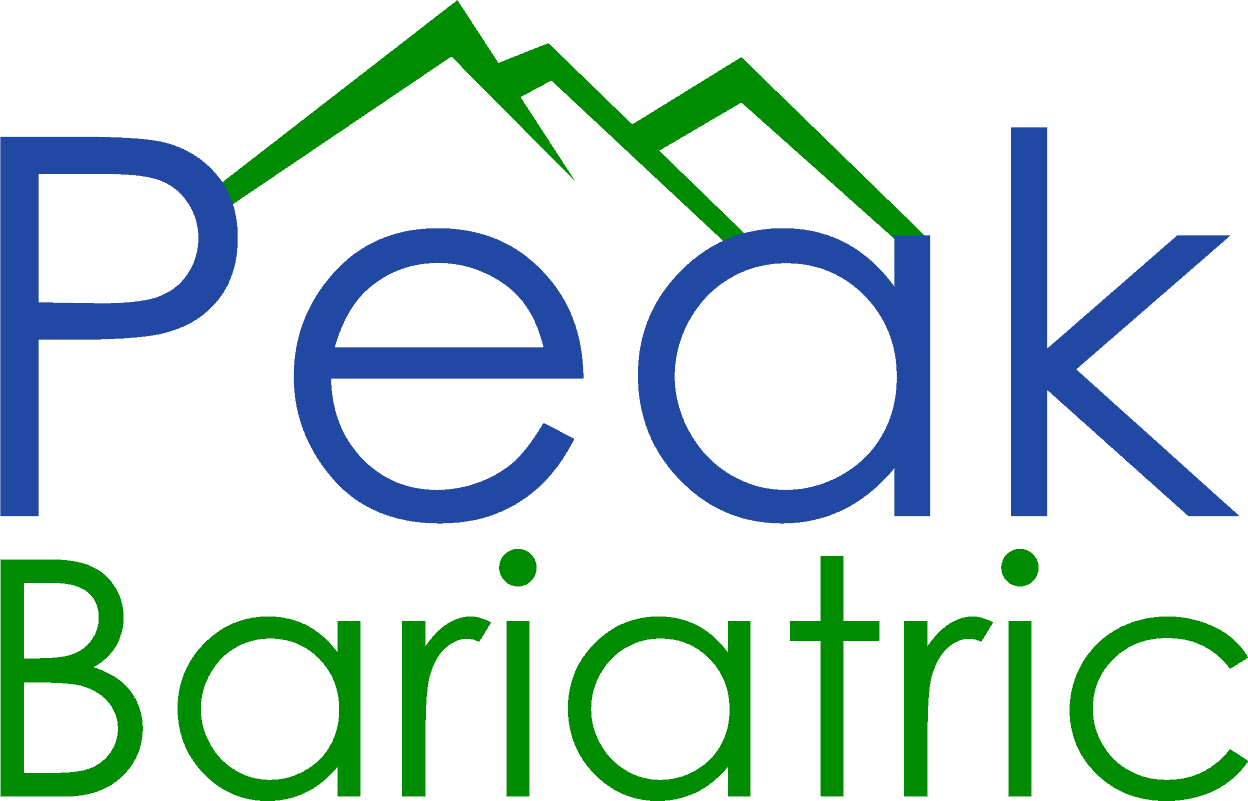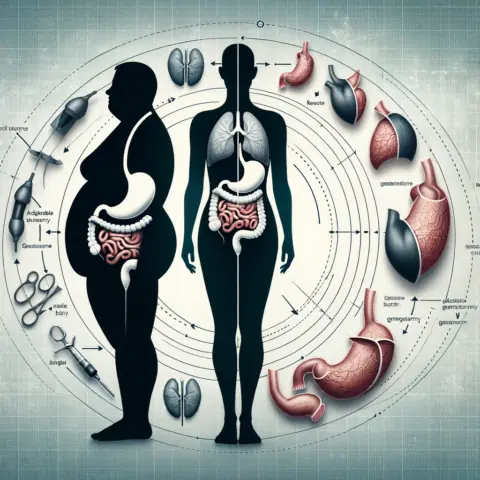Duodenal switch surgery is a complex weight-loss procedure that involves both restrictive and malabsorptive elements, making it one of the most effective bariatric surgeries available today. However, it’s not as commonly performed as other types of bariatric surgeries like the Gastric Sleeve or Gastric Bypass, primarily due to its complexity. In Dallas, Texas, Peak Bariatric Surgery stands at the forefront in the field, offering a wide array of weight-loss surgical solutions, including the Duodenal Switch procedure.
How Duodenal Switch Surgery Works
Duodenal switch surgery involves two primary steps. First, a portion of the stomach is removed, creating a smaller, tubular stomach similar to the shape achieved in sleeve gastrectomy. This step helps reduce the amount of food you can eat at one time, thereby promoting weight loss.
The second part of the procedure involves rearranging the small intestines to divert the flow of bile and pancreatic juices. These digestive juices mix with the food you eat later in the intestine, hence the term “malabsorptive.” This step reduces the amount of calories and nutrients your body can absorb from the food you eat.
Given the complexity and the permanent nature of this surgery, it is vital to choose the right surgeon for the procedure. You want someone who not only has the required experience and skills but also understands your unique needs and health profile. At Peak Bariatric Surgery, we provide all these and more.
Why Opt for Duodenal Switch Surgery?
Duodenal switch surgery is highly effective for patients with a higher BMI and those who have not seen the desired results from previous weight loss surgeries. Furthermore, it has been found to be particularly effective in controlling co-morbidities, such as type 2 diabetes, hypertension, and sleep apnea.
However, it’s essential to understand that this is not a quick fix. Navigating the gastric bypass journey, for example, requires commitment to lifelong changes in diet, physical activity, and mindset. The same is true for duodenal switch surgery.
Before choosing any bariatric surgery, patients must understand the potential pros and cons of weight loss surgeries and be willing to make significant lifestyle changes to ensure the surgery’s success.
Duodenal Switch vs. Other Bariatric Procedures
While other bariatric procedures like the Gastric Bypass and Gastric Sleeve can also yield substantial weight loss, the duodenal switch surgery often results in greater long-term weight loss. One of the reasons behind this is the combination of restrictive and malabsorptive components in the procedure. Moreover, in cases where patients experience weight regain after other procedures, duodenal switch surgery can be an effective revision surgery option.
On the flip side, the malabsorptive component of the surgery means patients will need to be vigilant about their nutrition intake and may require lifelong supplements to avoid deficiencies. It is.AI Assistant<|im_sep|># A Closer Look at Duodenal Switch Surgery in Dallas
Duodenal switch surgery, also known as biliopancreatic diversion with duodenal switch (BPD/DS), is an advanced form of bariatric surgery that provides substantial weight loss benefits. Dallas, a city that recognizes the importance of combating obesity, offers this unique surgical option for eligible candidates. In this article, we delve into the intricacies of this procedure and understand its suitability for individuals battling obesity in Dallas.
The duodenal switch surgery is distinctively structured to address two significant challenges that face most weight loss procedures – appetite control and calorie absorption. It employs a dual mechanism that involves reducing stomach size (restrictive component) and bypassing a part of the small intestine (malabsorptive component). This procedure may be recommended to individuals with a high Body Mass Index (BMI) and where previous weight loss methods, including other forms of surgery, have been ineffective.
For patients seeking a more thorough understanding of this procedure, Peak Bariatric offers a comprehensive overview of various bariatric surgeries. On Gastric Sleeve vs Gastric Bypass: Which is Right for You, you can further compare BPD/DS with other weight loss procedures.
The Mechanism Behind Duodenal Switch Surgery
In the first phase of the duodenal switch procedure, the surgeon removes about 70% of the stomach along the greater curvature, creating a slender, banana-shaped gastric tube or “sleeve”. This not only restricts the amount of food the stomach can hold, but also significantly reduces the production of ghrelin – the hormone responsible for triggering feelings of hunger.
The second phase is where the procedure gets its name from. Here, the surgeon divides the small intestine and “switches” its path, rerouting it to the end of the intestine. This results in the majority of the calories and nutrients being bypassed, resulting in fewer calories absorbed by the body.
Comparing the procedure with other weight loss surgeries, the duodenal switch procedure offers the most substantial long-term weight loss, which makes it an appealing option for those with severe obesity.
Preparing for Duodenal Switch Surgery in Dallas
Preparation for duodenal switch surgery is multifaceted, encompassing both physical and emotional aspects. The multidisciplinary team at Peak Bariatric will guide patients through the process, ensuring they are ready for the surgical journey. In the guide on preparing for bariatric surgeries, patients can learn more about the process and what to expect.
Before the procedure, a thorough medical evaluation is conducted to assess the patient’s overall health and suitability for the surgery. This typically includes blood tests, imaging studies, nutritional counseling, and psychological evaluation. In some cases, patients may be asked to lose some weight before the surgery to reduce surgical risk.
An important component of the preparation process involves choosing the right surgeon for the procedure. When selecting a bariatric surgeon, patients should consider factors such as the surgeon’s experience with duodenal switch surgeries, their success rates, and their approach to aftercare and follow-up.
Financing the Procedure
Given the complexity and extensive nature of the duodenal switch procedure, it may be more expensive compared to other bariatric surgeries. However, Peak Bariatric provides multiple financing options to help patients manage the cost. They work closely with various medical loan providers and insurance companies to determine the best financial plan for each patient. You can learn more about these options on their financing page.
While insurance coverage for the procedure can vary widely depending on the policy and the insurance company, most insurance providers will cover the cost if it is deemed medically necessary. In some cases, patients may need to provide documentation of previous attempts at non-surgical weight loss to demonstrate the necessity of surgery.
After the Surgery: Recovery and Lifelong Changes
Post-operative recovery from duodenal switch surgery is typically longer than other bariatric surgeries due to its complexity. Initial recovery can take up to several weeks, with full recovery often requiring several months. During this period, patients will need to follow a strict diet plan that gradually reintroduces various types of food. Peak Bariatric’s post-operative guide provides detailed information on diet progression after the surgery.
The success of duodenal switch surgery, as with any weight loss procedure, relies heavily on lifelong dietary and lifestyle changes. Patients must adhere to a high-protein, low-carb diet and take vitamin and mineral supplements daily due to the malabsorptive component of the surgery. Regular exercise and follow-up appointments with the healthcare team are also essential to monitor health status, manage potential side effects, and ensure continued weight loss success.
In conclusion, duodenal switch surgery offers a powerful solution for individuals battling severe obesity. It provides substantial and sustainable weight loss results, but it also requires a significant commitment to lifelong dietary and lifestyle changes. In Dallas, Peak Bariatric is a leading provider of this procedure, offering comprehensive support from the initial consultation to long-term postoperative care. Their dedication to patient education, coupled with their commitment to quality care, makes them an excellent choice for those considering bariatric surgery.
Key Takeways
- The duodenal switch surgery is a complex but highly effective bariatric surgery method, ideal for individuals with severe obesity.
- Peak Bariatric in Dallas, Texas, specializes in performing this procedure, providing thorough consultations and personalized care.
- The procedure involves two parts: sleeve gastrectomy for restrictive weight loss, and rerouting the small intestine for malabsorptive weight loss.
- Duodenal switch surgery results in greater weight loss and improvement in obesity-related health conditions compared to other bariatric surgery types.
- The procedure may lead to vitamin and mineral deficiencies due to the malabsorption aspect, requiring patients to adhere to a high-protein, low-carb diet and take daily supplements.
- The cost of duodenal switch surgery can be higher than other methods, but Peak Bariatric provides financing options and helps with insurance coverage procedures.
- Recovery from duodenal switch surgery requires several weeks to months, with a strict diet progression plan provided by Peak Bariatric.
- Lifelong commitment to dietary and lifestyle changes is key to the success of duodenal switch surgery.
- Peak Bariatric offers comprehensive support from the initial consultation to long-term postoperative care for patients undergoing duodenal switch surgery.







